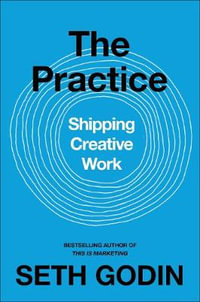
At a Glance
Paperback
RRP $24.99
$24.50
Aims to ship in 5 to 10 business days
When will this arrive by?
Enter delivery postcode to estimate
Building on his bestseller The Rational Optimist, Matt Ridley chronicles the history of innovation, and how we need to change our thinking on the subject. Innovation is the main event of the modern age, the reason we experience both dramatic improvements in our living standards and unsettling changes in our society. It is innovation that will shape the twenty-first century. Yet innovation remains a mysterious process, poorly understood by policy makers and businessmen alike.
Matt Ridley argues that we need to see innovation as an incremental, bottom-up, fortuitous process that happens as a direct result of the human habit of exchange, rather than an orderly, top-down process developing according to a plan. Innovation is crucially different from invention, because it is the turning of inventions into things of practical and affordable use to people. It speeds up in some sectors and slows down in others. It is always a collective, collaborative phenomenon, involving trial and error, not a matter of lonely genius. It still cannot be modelled properly by economists, but it can easily be discouraged by politicians. Far from there being too much innovation, we may be on the brink of an innovation famine.
Ridley derives these and other lessons from the lively stories of scores of innovations – from steam engines to search engines – how they started and why they succeeded or failed.
About the Author
Matt Ridley received his BA and D Phil at Oxford researching the evolution of behaviour. He has been science editor, Washington correspondent and American editor of The Economist. He has a regular column in the Daily Telegraph. He is also the author of The Red Queen (1993), The Origins of Virtue (1996) and Genome(1999). Matt Ridley is currently the chairman of The International Centre for Life.
Matt Ridley argues that we need to see innovation as an incremental, bottom-up, fortuitous process that happens as a direct result of the human habit of exchange, rather than an orderly, top-down process developing according to a plan. Innovation is crucially different from invention, because it is the turning of inventions into things of practical and affordable use to people. It speeds up in some sectors and slows down in others. It is always a collective, collaborative phenomenon, involving trial and error, not a matter of lonely genius. It still cannot be modelled properly by economists, but it can easily be discouraged by politicians. Far from there being too much innovation, we may be on the brink of an innovation famine.
Ridley derives these and other lessons from the lively stories of scores of innovations – from steam engines to search engines – how they started and why they succeeded or failed.
About the Author
Matt Ridley received his BA and D Phil at Oxford researching the evolution of behaviour. He has been science editor, Washington correspondent and American editor of The Economist. He has a regular column in the Daily Telegraph. He is also the author of The Red Queen (1993), The Origins of Virtue (1996) and Genome(1999). Matt Ridley is currently the chairman of The International Centre for Life.
Industry Reviews
‘Ridley is spot-on when it comes to the vital ingredients for success’
Sir James Dyson
'An insightful and charming exploration of questions that range from the truly profound (How does our species capture energy to stave off decay and death?) to the merely fascinating (Why did it take us so long to invent the wheeled suitcase?)'
Steven Pinker Johnstone Professor, Harvard University, and author of Enlightenment Now
'From the Stone Age to smartphones and from farming to fission, Matt Ridley demonstrates with a plethora of examples how innovation has changed and, for the most part, improved the human condition, despite repeated resistance and frequent failure. Given the freedom of thought that innovation needs, he argues, we can ensure the survival of the planet. We abandon it or constrain it at our peril'
Sir Tim Laurence Chairman of English Heritage
'In this insightful and delightful book, Matt Ridley explores the wondrous causes of innovation, the force that drives our modern economy. He shows that it's a team sport, but one that features many colourful stars. It's a joy to tag along with him as he mines the history of human advances to discover nuggets of useful lessons'
Walter Isaacson author of Steve Jobs
'A compelling case for free enterprise and free trade and the power of serendipity.'
Liz Truss MP Secretary of State for International Trade
Sir James Dyson
'An insightful and charming exploration of questions that range from the truly profound (How does our species capture energy to stave off decay and death?) to the merely fascinating (Why did it take us so long to invent the wheeled suitcase?)'
Steven Pinker Johnstone Professor, Harvard University, and author of Enlightenment Now
'From the Stone Age to smartphones and from farming to fission, Matt Ridley demonstrates with a plethora of examples how innovation has changed and, for the most part, improved the human condition, despite repeated resistance and frequent failure. Given the freedom of thought that innovation needs, he argues, we can ensure the survival of the planet. We abandon it or constrain it at our peril'
Sir Tim Laurence Chairman of English Heritage
'In this insightful and delightful book, Matt Ridley explores the wondrous causes of innovation, the force that drives our modern economy. He shows that it's a team sport, but one that features many colourful stars. It's a joy to tag along with him as he mines the history of human advances to discover nuggets of useful lessons'
Walter Isaacson author of Steve Jobs
'A compelling case for free enterprise and free trade and the power of serendipity.'
Liz Truss MP Secretary of State for International Trade
ISBN: 9780008334840
ISBN-10: 0008334846
Published: 6th July 2021
Format: Paperback
Language: English
Number of Pages: 432
Audience: General Adult
Publisher: HarperCollins Publishers
Country of Publication: GB
Dimensions (cm): 2.9 x 19.7 x 13
Weight (kg): 0.307
Shipping
| Standard Shipping | Express Shipping | |
|---|---|---|
| Metro postcodes: | $9.99 | $14.95 |
| Regional postcodes: | $9.99 | $14.95 |
| Rural postcodes: | $9.99 | $14.95 |
How to return your order
At Booktopia, we offer hassle-free returns in accordance with our returns policy. If you wish to return an item, please get in touch with Booktopia Customer Care.
Additional postage charges may be applicable.
Defective items
If there is a problem with any of the items received for your order then the Booktopia Customer Care team is ready to assist you.
For more info please visit our Help Centre.
You Can Find This Book In
This product is categorised by
- Non-FictionBusiness & ManagementBusiness Innovation
- Non-FictionSociety & CultureMedia Studies
- Non-FictionPsychologySocial Psychology
- Non-FictionEngineering & TechnologyTechnology in GeneralInventions & Inventors
- Non-FictionEconomicsDevelopment Economics & Emerging Economies
- Non-FictionScienceScience in GeneralImpact of Science & Technology on Society
- Non-FictionPolitics & Government
- Non-FictionBusiness & ManagementEntrepreneurship / Start-ups






















